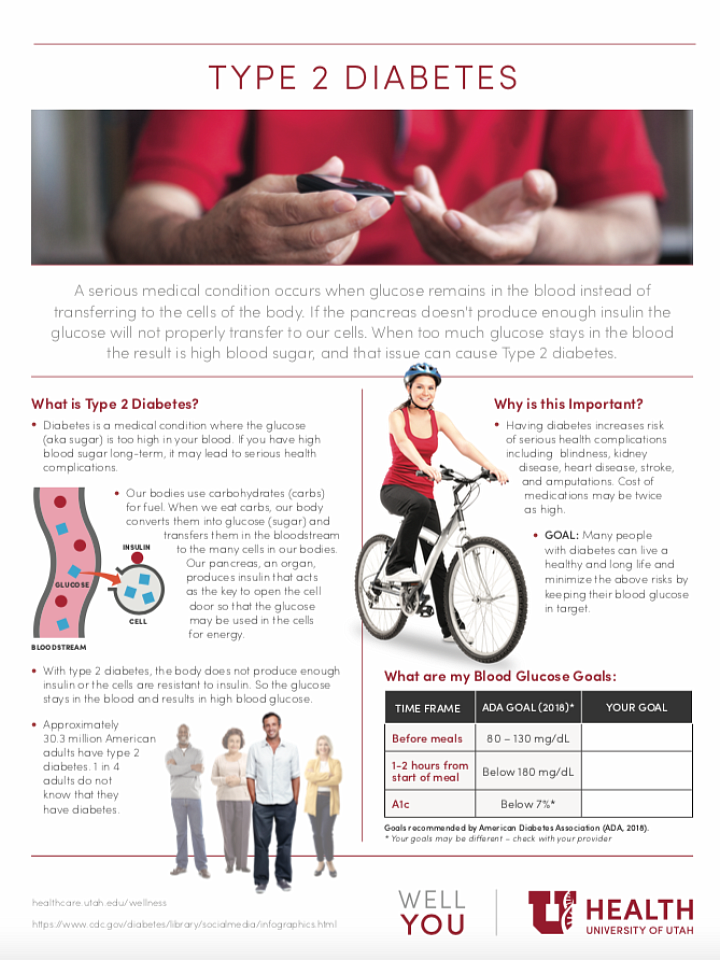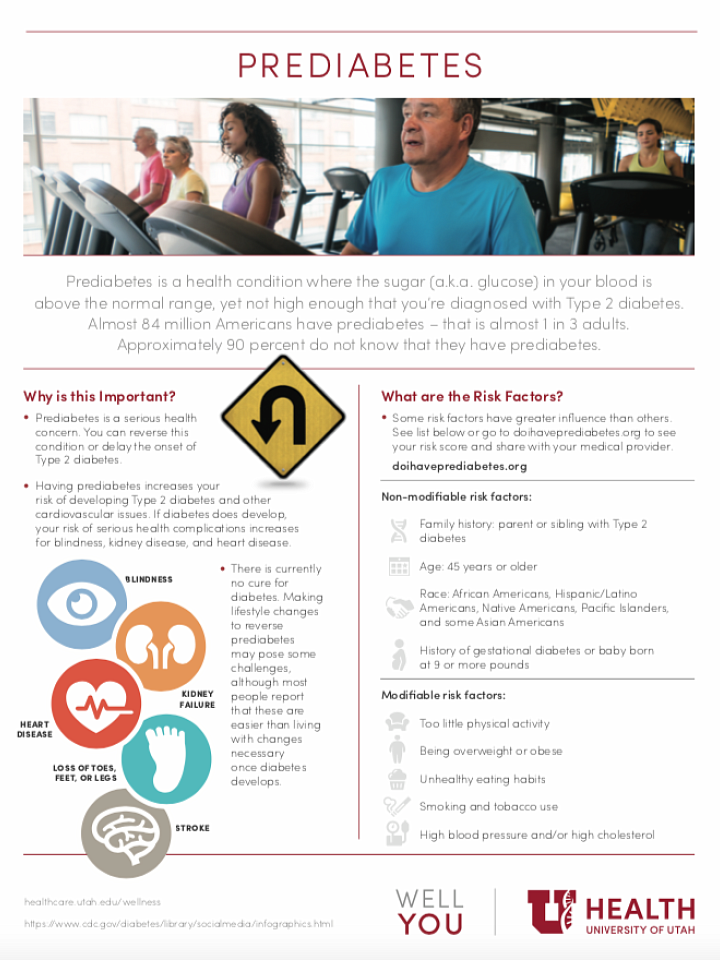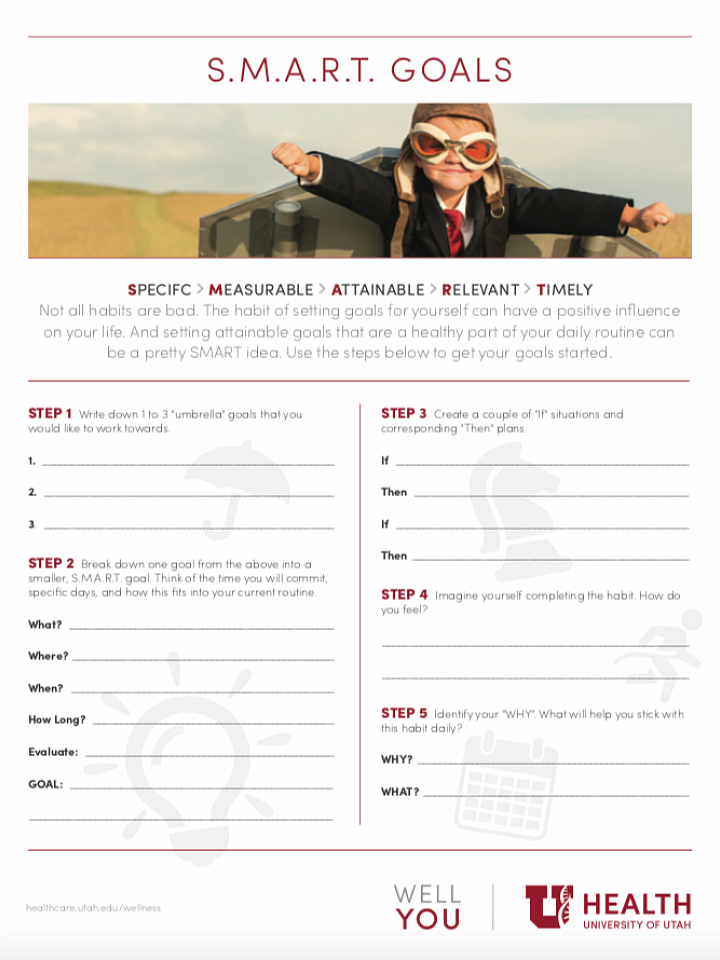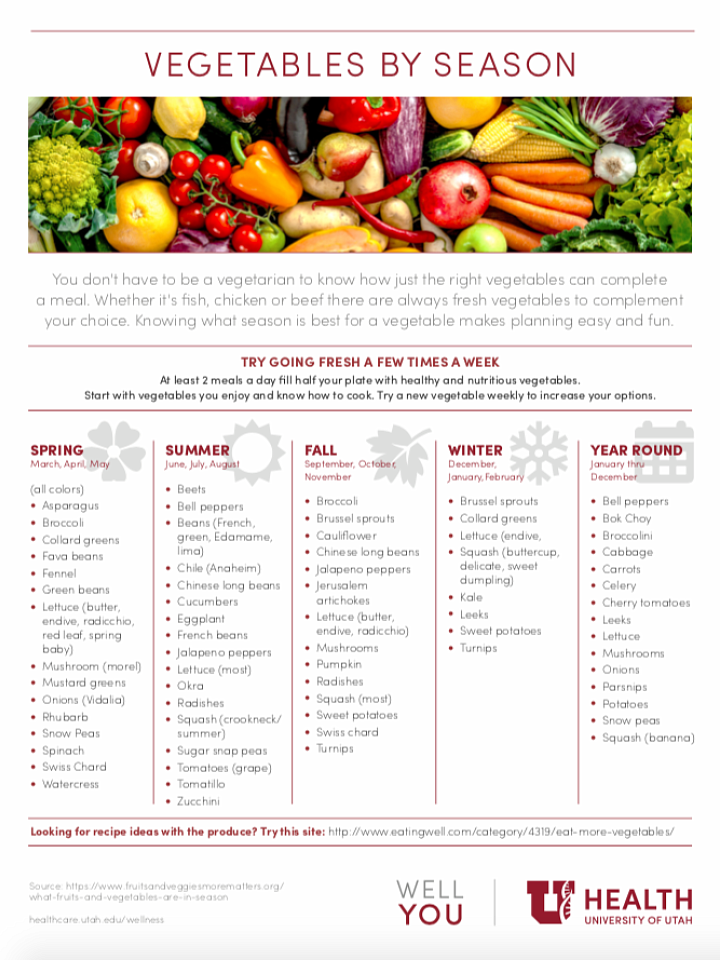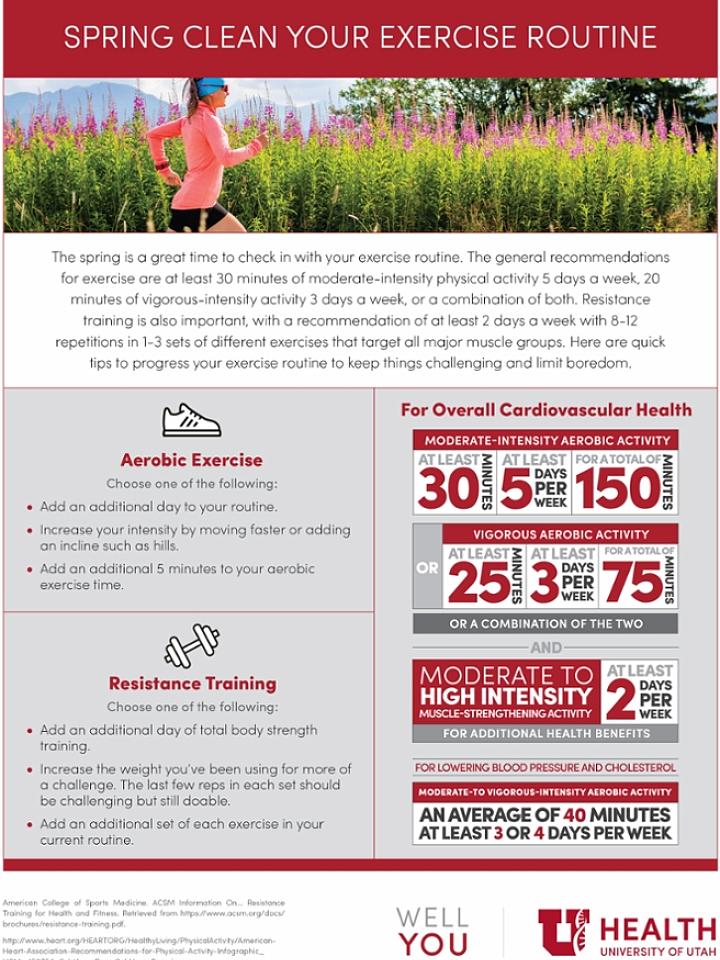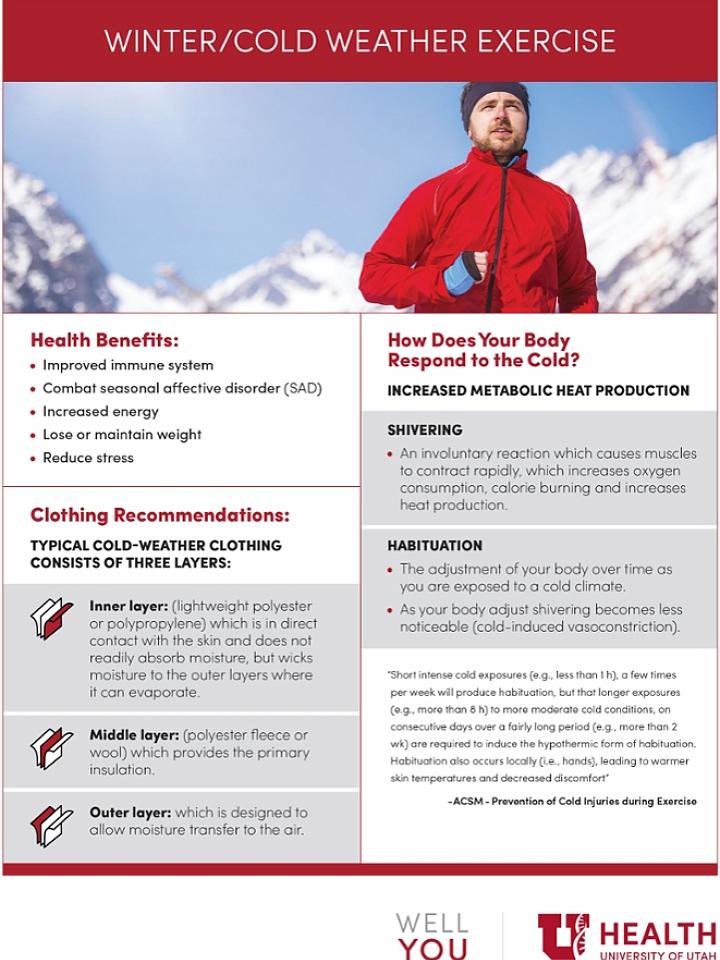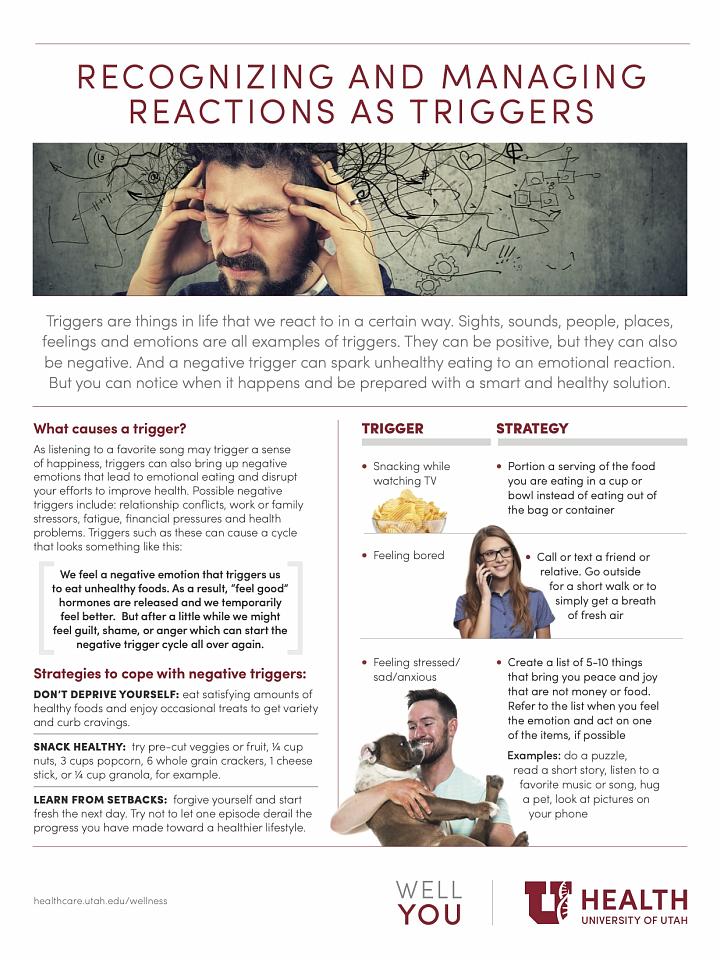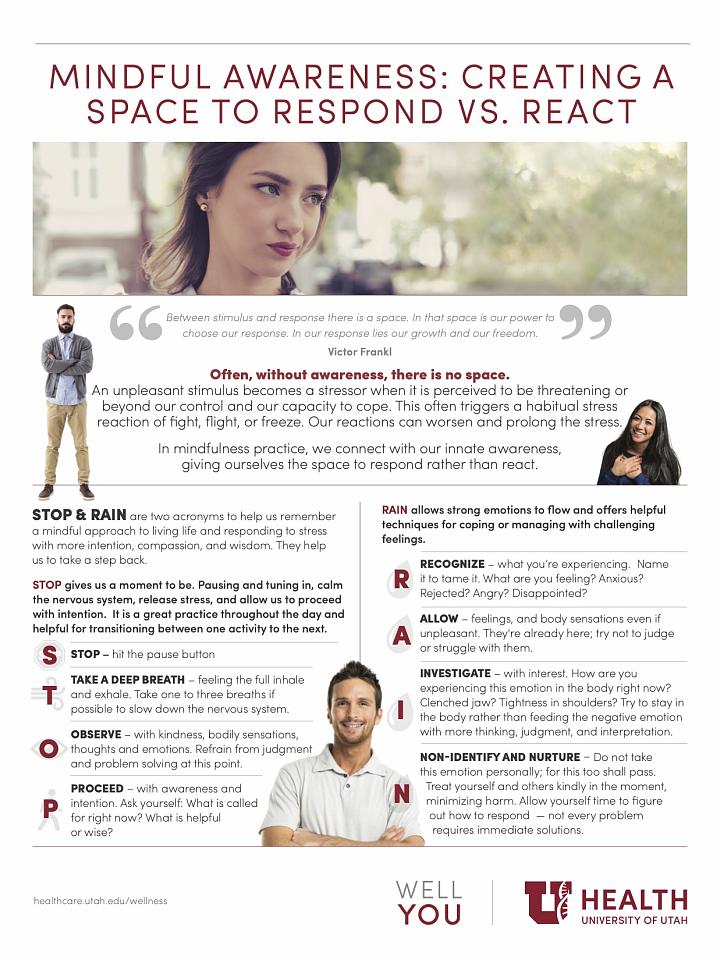
¿Habla español? Haga clic aquí.
Prediabetes is a health condition where the sugar (a.k.a. glucose) in your blood is above the normal range, yet not high enough that you’re diagnosed with type 2 diabetes. Almost 84 million Americans have prediabetes—that's almost one in three adults. The following resources, including informational videos, handouts, and local programs, will help you learn more about prediabetes and healthy changes you can make to improve your lifestyle.
Video Series
Learn all about prediabetes with the Just the Facts about Prediabetes presentation series. Watch the videos in order or start with the topic you find most helpful.
Session 1
- What is prediabetes and why is it important?
- What is diabetes and what are the risk factors?
- What is the DPP study?
- Next steps for people with prediabetes
- Goal setting and other resources
Session 2
- What does healthy eating mean?
- How can I be more active?
- How can I overcome barriers to being active?
Session 3
1.1: What Is Prediabetes and Why Is it Important?
This video provides a helpful introduction to prediabetes, why it's important, and what it can mean for you. Prediabetes is a health condition where the glucose in your blood is above the normal range, but not so high that you're diagnosed with type 2 diabetes. Understanding prediabetes is an important first step on your path to create a healthier lifestyle and reverse or delay the onset of type 2 diabetes.
1.2: What Is Diabetes and What Are the Risk Factors?
In part 2 of the Just the Facts About Prediabetes video series, you will learn what diabetes is and how it affects glucose absorption in your body. You'll also learn about certain risk factors (including age, family history, activity, or diet), steps you can take to lower your overall blood sugar and prevent type 2 diabetes, and how to understand the results of blood tests that can tell you if you're at risk (fasting blood sugar and hemoglobin A1C).
Take the CDC Risk Test to find out if you may be at risk.
1.3: What Is the DPP Study?
In this video, you'll learn about the Diabetes Prevention Program (DPP) research study and how its results have shown that lifestyle changes are the most effective way to prevent or delay the onset of type 2 diabetes. Those with prediabetes can significantly reduce their risk of developing diabetes by taking small steps to increase activity, eat healthier, and lose weight.
1.4: Next Steps for People with Prediabetes
1.5: Goal Setting and Other Resources
This video will help you set three S.M.A.R.T. (Specific, Measurable, Attainable, Relevant, Timely) goals for the healthy lifestyle habits that you want to start. Download the S.M.A.R.T. Goals handout to help you record your goals, establish a plan, and track your progress. You'll also learn about additional resources available for those with prediabetes, including the U of U Diabetes Prevention Program (DPP) and support from registered dietitians at the Skaggs Patient Wellness Center. Email dpp@utah.edu for more information.
2.1: What Does Healthy Eating Mean?
2.2: How Can I Be More Active?
Learn about the different ways that being active can positively impact your health, including losing or maintaining weight, preventing or delaying diabetes, and gaining more energy. Aim for at least 30 minutes a day, five days a week, and include flexibility, strength, and cardiovascular exercises to see the most benefits.
2.3: How Can I Overcome Barriers to Being Active?
Let's talk about the three most common barriers people face when trying to improve their health and activity, and some helpful ideas to tackle them. No matter what may be keeping you from being active, there are steps you can take to overcome it. We'll also learn about some more useful tips to help you set goals and track your progress.
Download the S.M.A.R.T. Goals handout to help you record your goals.
3.1: Holidays the Healthy Way
Sticking to your healthy habits can be challenging, especially during the holiday season. Many social events are centered around tempting treats, making it easy to slip up. In this video, we'll talk about tips to help you navigate holidays and social events without giving up on your healthy eating goals.
3.2: Emotional Eating
Negative triggers and emotions like stress, boredom, or anger can lead to emotional eating. In this video, we'll talk about ways to cope with negative triggers while still sticking to healthy eating habits. Download the Managing Triggers handout for more information.
3.3: Managing Stress
Learn about how stress can impact your health, as well as some techniques to keep your stress levels under control. Download the Mindful Awareness handout for more information and tips to help you deal with stress and other negative emotions.
3.4: Staying Motivated and Long-Term Goals
Motivation plays a huge role in sticking to your long-term goals. Watch this video to learn more about the importance of staying motivated. We'll discuss things you can do to avoid discouragement and help you turn your new health habits into a way of life.
Programs and Classes
One Day Diabetes Program
This unique one-day program offers personalized care as well as diabetes education in a small group setting. In this all-day interactive educational program our team will help you develop a personalized plan to achieve your diabetes goals and follow-up with you to promote ongoing success. Our program is designed to support individuals who have a new diagnosis of diabetes as well as those who have had diabetes for many years.
National Diabetes Prevention Program
This program lasts for 12 months and covers science-based education and lifestyle changes. The program will help you to learn about healthy food choices, build physical activity into your life, lose weight, and decrease your risk of diabetes.
Intensive Lifestyle Program
The Intensive Lifestyle Program looks at the components of a healthy lifestyle to get you started on your way to feeling great. Most chronic diseases can be prevented or improved by lifestyle, but a healthy lifestyle also helps immediately by improving sleep, energy, mood, and focus. The program consists of 12 weekly 90-minute sessions and access to our gym for the duration of the program.

